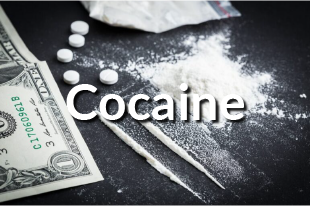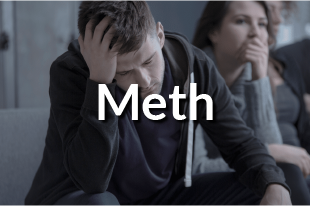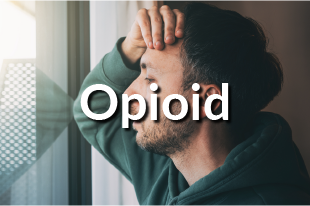Inpatient drug treatment is for anyone suffering from addiction or co-occurring mental health disorders who will benefit from temporarily living at the treatment center. This provides the best opportunity to focus on achieving permanent sobriety in a safe and comfortable environment. Our inpatient rehab center utilizes a holistic approach to treatment that caters to the mind, body, and soul of its members.
If you or a loved one need help now please call 855-299-4472 or click here to use your insurance benefits to start treatment.
Our inpatient alcohol rehab and drug addiction treatment center offers patients the opportunity to participate in stress-relieving activities such as yoga, art classes, individual and group counseling while staying with us.
A combination of medically assisted treatments and diverse forms of therapy during inpatient residential treatment will give the best tools needed to ensure a smooth treatment process and provide the tools required for long-term sobriety.
The components of residential drug and alcohol abuse treatment are outlined below to aid addicts who are seeking a remedy to their addiction, by learning about how residential treatment programs operate daily.

Inpatient Rehab Program Options
Benefits of Residential Drug Rehab
Round-the-clock Monitoring
At our inpatient drug rehab center, patients are supervised 24 hours by nurses, doctors, and other trained medical treatment specialists to manage withdrawal symptoms and ensure comfort and safety throughout this tense phase of recovery.
A Healing Environment
A majority of our patients have suffered mental, physical, and emotional damage as an effect of substance abuse. The healing environment at our inpatient substance abuse facility administers stability and serenity. Fitness therapy, nutritional counseling, and comfortable services nourish the body and spirit.
A Supportive Population
Patients at our residential treatment center are surrounded by qualified treatment specialists who are devoted to empowering everybody enrolled in recovery. Also, patients will have the ability to form essential and healthy relationships with others who have similar goals and lifestyle.
Ability to Focus on Recovery
The recovery process can be demanding and intense. Inpatient addiction treatment programs grant patients the opportunity to momentarily leave their stress and responsibilities behind to be able to focus only on therapy. For a majority of patients, this hiatus from their daily lives is a vital component of sobriety and healing.
Progressive Pharmacotherapy
Medication-assisted treatment is a vital complement to intensive cognitive-behavioral therapy. At a residential treatment center, Patients are thoroughly evaluated to ascertain whether they’ll benefit from pharmaceutical treatment for anxiety, addiction, depression, or other complicated conditions. Staff members work closely with residential clients and can administer medications, support compliance, and modify dosing appropriately.
Why Seek Inpatient Rehab Treatment for Alcohol and Drug Abuse?

With multiple levels of treatment available and a variety of programs across the nation, determining the most suitable treatment plan can be overwhelming. Although individuals enlist into residential addiction treatment for an assortment of reasons, particular struggles usually require individuals to enroll in a residential treatment program which includes:
There are also other circumstances that could make residential treatment a proper fit for individuals who undergo or require the following:
Inpatient Addiction Treatment vs Outpatient Programs
One might think that the primary distinction between inpatient and outpatient drug and alcohol treatment lies solely in whether the individual resides at home or not. This is far from true. Here are some of the pros and cons of both.
Level of Care
Inpatient treatment provides a higher level of care with 24/7 medical supervision and intensive therapy to manage withdrawal symptoms well, while outpatient rehab offers less intensive care, typically involving scheduled therapy sessions but not round-the-clock supervision.
Environment
Inpatient addiction programs offer a structured, distraction-free environment that eliminates potential triggers and distractions, making them ideal for severe drug and alcohol addiction. Outpatient programs, on the other hand, offer to treat substance abuse in a more realistic environment, which can be beneficial for those who can manage potential triggers.
Flexibility and Life Balance
Outpatient programs are more flexible, allowing patients to continue with work, school, or family responsibilities. Inpatient programs require a full-time commitment, which can disrupt normal life routines.
Cost
Inpatient treatment tends to be more expensive due to the comprehensive services, including accommodation and 24/7 care. Outpatient treatment is typically less costly, as it does not involve accommodation expenses.
Support Network
Inpatient programs provide a built-in community of professionals and other patients for support. Outpatient programs allow patients to stay close to their personal support network of family and friends for emotional support.
Severity of Addiction
Inpatient treatment is typically more suitable for individuals with severe substance use disorder or those with a history of recurrent drug or alcohol abuse relapses, while outpatient treatment can be effective for those with less severe addictions or a strong support system at home.
How To Choose An Inpatient Treatment Center
Choosing an inpatient treatment center is a crucial decision that can significantly impact the recovery process. Here are some factors to consider:
Accreditation and Licensing
Make sure the inpatient rehab center is accredited by a recognized body, and the medical professionals are licensed and trained.
Inpatient rehab centers vary in their drug and alcohol treatment methods. Some inpatient rehab programs focus on holistic approaches, others on evidence-based therapies, and many use a mix. Choose a treatment provider that uses methods that resonate with you or the patient.
Specialties
Some inpatient rehab centers specialize in treating specific substance use disorder or dual diagnosis. If you’re dealing with a specific type of addiction, find an inpatient rehab center that specializes in that area.
Duration
The length of the inpatient rehab program can vary from a few weeks to several months. Choose a treatment program that suits your needs and commitments, although it’s important to note that longer programs often have higher success rates.
Aftercare Support
Look for an inpatient drug and alcohol addiction treatment center that offers aftercare support. Aftercare is crucial for maintaining long-term sobriety and can include outpatient treatment, sober living homes, individual therapy, or group counseling.
Environment
As you’ll be living at the inpatient treatment center, it’s important to choose a place where you feel comfortable. This might include preferences for a single-sex or co-ed program, the location of the facility (urban vs. rural), and amenities offered.
Reviews and Recommendations
Check reviews and get recommendations if possible. Hearing from former patients can give you insight into what to expect from the inpatient treatment program.
Inpatient addiction treatment cost
Consider the cost of the inpatient rehabilitation program and what your insurance will cover. You may need to call your insurance company to see what treatment costs they cover.
Remember, it’s important to reach out to multiple inpatient treatment centers and ask questions about their inpatient rehab programs to ensure you make the right choice.
Receive Inpatient Substance Abuse Treatment in Sunny Florida!
Here at Behavioral Health Centers, we are dedicated to using co-occurring science and holistic based treatment to treat people that are suffering from alcohol and drug addiction or both substance abuse addiction and mental illness. To attend our inpatient drug rehab programs at our inpatient rehab in the beautiful Treasure Coast of Florida, contact us today.
How Long is Inpatient Rehab?
Various factors influence the length of inpatient rehab, though typical stays range from 30 to 90 days. Some factors that influence the duration of rehab include:
Severity of Addiction: The severity of a person’s alcohol use disorder significantly impacts the length of their inpatient rehab program. Those with severe alcohol use disorder or long-term alcohol abuse may require a longer stay to achieve stable recovery.
Co-occurring Disorder Treatment: Many individuals with alcohol addiction also suffer from mental health issues such as depression, anxiety, or PTSD. Treating these co-occurring disorders alongside alcohol addiction often necessitates an extended stay in rehab to address both mental health issues comprehensively.
We Accept Most Health Insurance Plans
We understand that financial concerns should never hinder access to quality inpatient addiction treatment. That’s why we accept most health insurance plans for our inpatient treatment programs. Our team will assist with insurance verification, billing, and maximizing your benefits, streamlining the process so you can focus fully on your recovery journey. Contact us today












